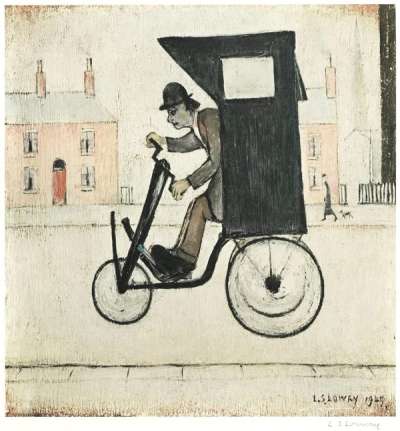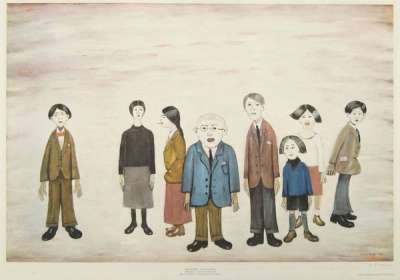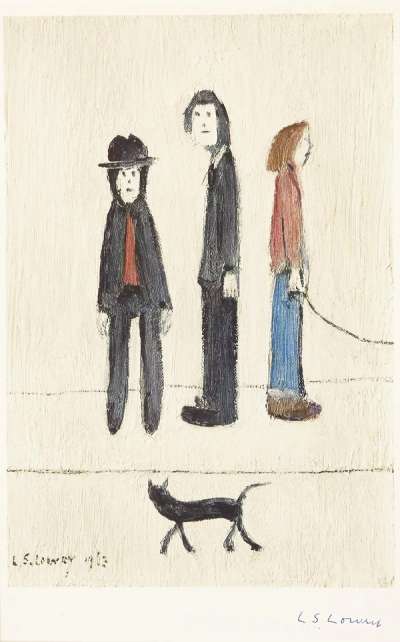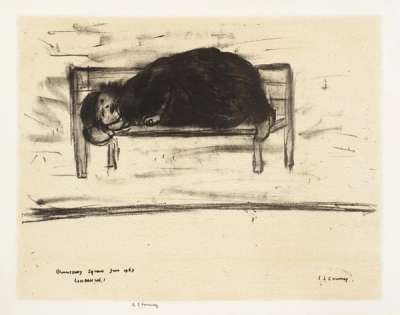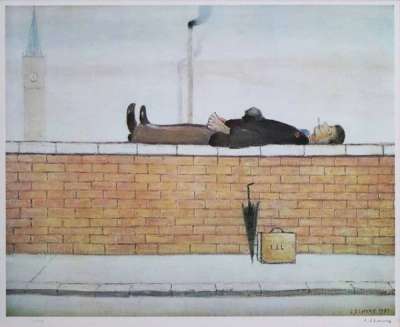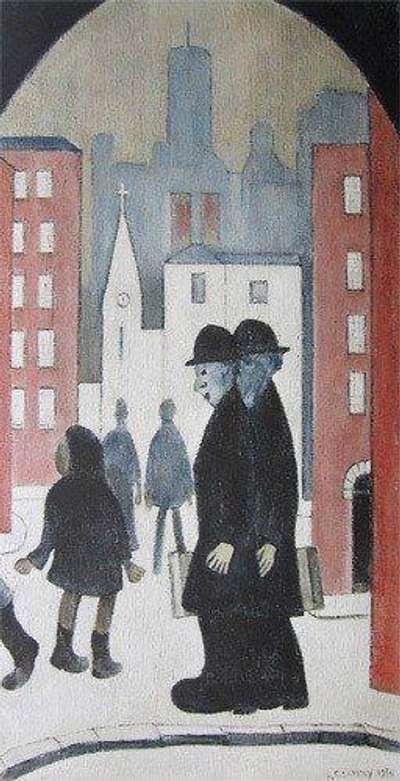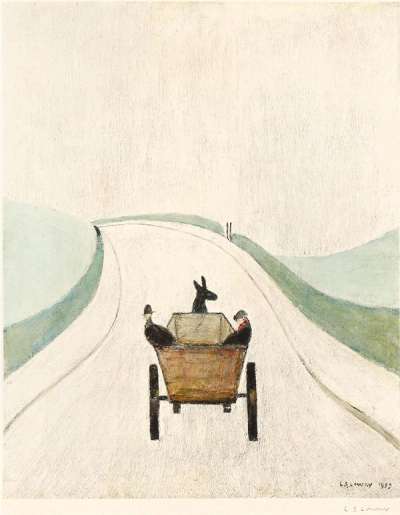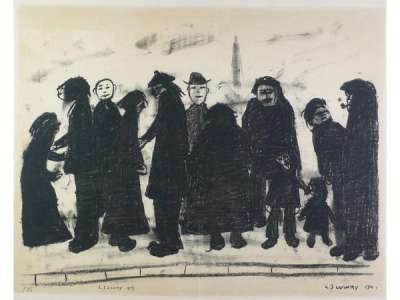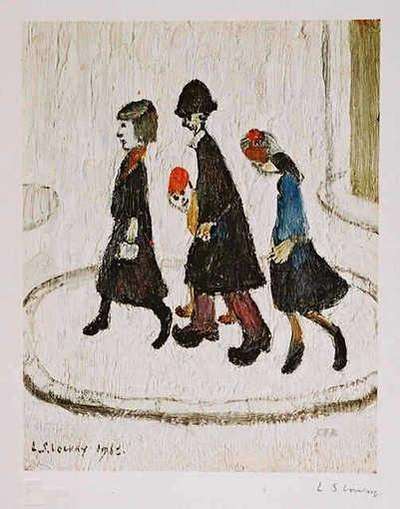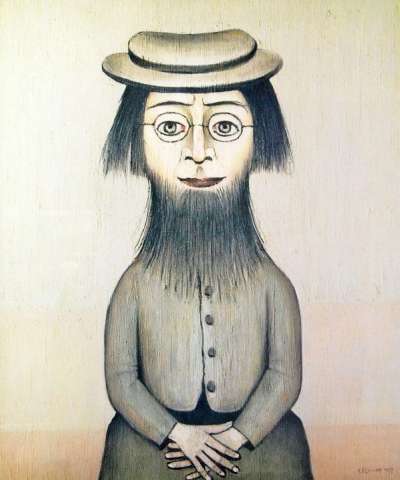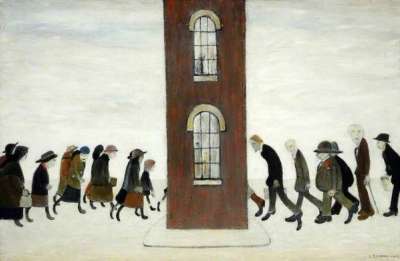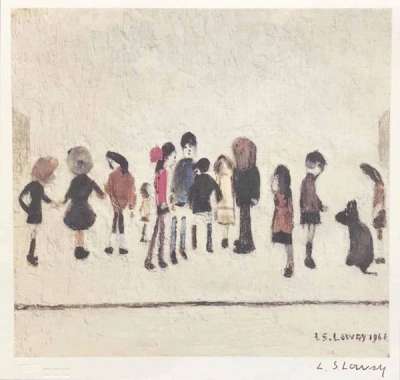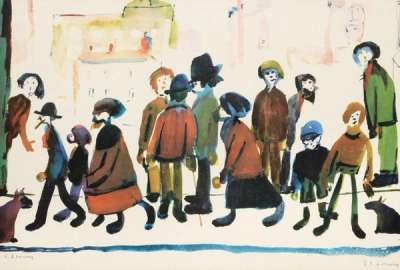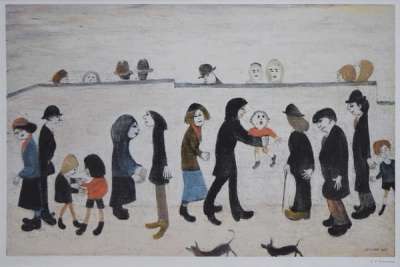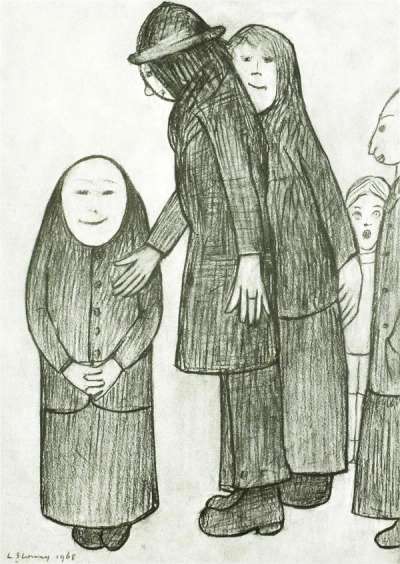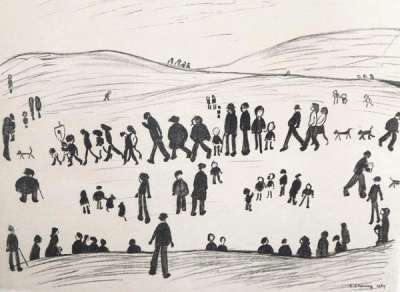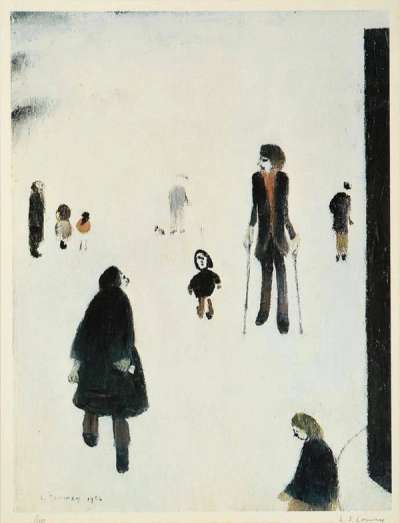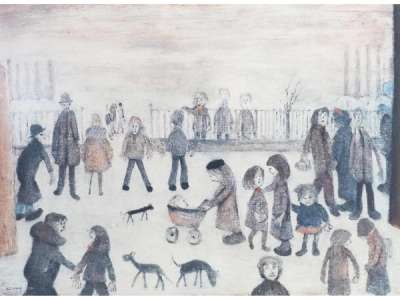Self Portrait, The Artist Mother And The Artist Father
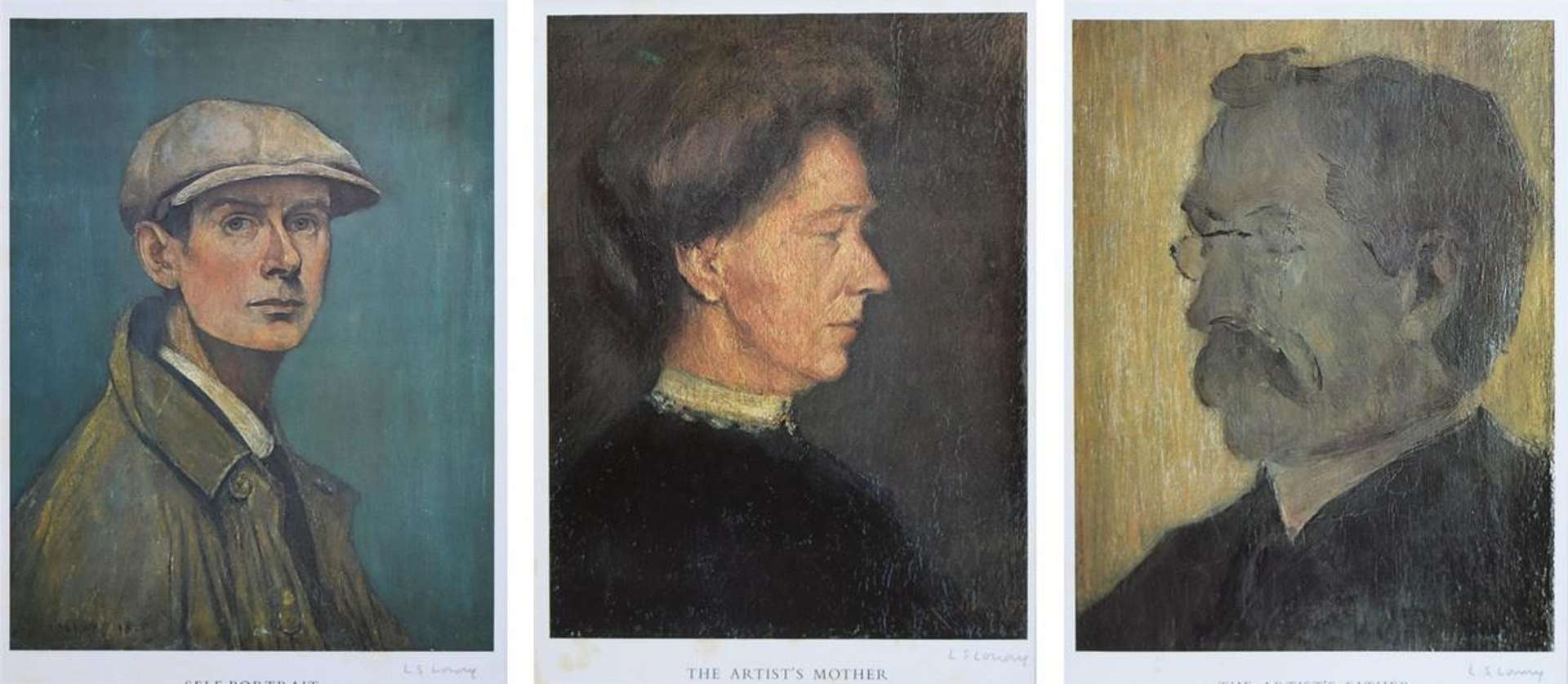
Self Portrait, The Artist Mother And The Artist Father
Signed Print
L S Lowry
£400-£600Value
Indicator
$750-$1,150 Value Indicator
$700-$1,050 Value Indicator
¥3,650-¥5,500 Value Indicator
€450-€700 Value Indicator
$3,950-$6,000 Value Indicator
¥80,000-¥110,000 Value Indicator
$500-$750 Value Indicator
AAGR (5 years) This estimate blends recent public auction records with our own private sale data and network demand.
There aren't enough data points on this work for a comprehensive result. Please speak to a specialist by making an enquiry.
Medium: Lithograph
Edition size: 300
Year: 1975
Size: H 24cm x W 31cm
Signed: Yes
Format: Signed Print
TradingFloor
MyPortfolio
Your collection tracked in real time.
Build your portfolio, manage valuations, view return against your collection and watch works you're looking for.
Track auction value trend
Auction Results
| Auction Date | Auction House | Artwork | Hammer Price | Return to Seller | Buyer Paid |
|---|---|---|---|---|---|
| September 2022 | Adam Partridge Auctioneers & Valuers - United Kingdom | Self Portrait, The Artist Mother And The Artist Father - Signed Print | |||
| July 2018 | Bonhams Knightsbridge - United Kingdom | Self Portrait, The Artist Mother And The Artist Father - Signed Print | |||
| September 2015 | Bonhams New Bond Street - United Kingdom | Self Portrait, The Artist Mother And The Artist Father - Signed Print | |||
| April 2015 | Rosebery's Fine Art Auctioneers - United Kingdom | Self Portrait, The Artist Mother And The Artist Father - Signed Print | |||
| September 2005 | Bonhams Leeds - United Kingdom | Self Portrait, The Artist Mother And The Artist Father - Signed Print | |||
| March 2005 | Bonhams Leeds - United Kingdom | Self Portrait, The Artist Mother And The Artist Father - Signed Print | |||
| September 2003 | Bonhams Leeds - United Kingdom | Self Portrait, The Artist Mother And The Artist Father - Signed Print |
Meaning & Analysis
Showing three portraits side by side, Self Portrait, The Artist Mother And The Artist Father is a lithograph from 1975 by L. S. Lowry, each depicted in highly realistic styles that differ greatly from his iconic industrial scenes. Showing the artist himself alongside his mother and father, the self-portrait is after an oil on board painting from 1925 and the prints of Mother and Father are after oil on canvases from 1910.
Lowry was often wrongly labelled as a ‘Sunday painter’ by critics since throughout his artistic career he worked as a rent collector during the day and worked on his art at night. However, his highly stylised method of painting and drawing was not due to a lack of training or discipline, and Self Portrait, The Artist Mother And The Artist Father proves his profound artistic abilities. The artist has said of this,“I am tired of people saying I am self-taught. I am sick of it. I did the life drawing for twelve solid years, and that I think is the foundation of painting.”
Lowry was an only child and had an unhappy relationship with his mother and father. His mother always remarked that she wanted daughters and his relationship with his father had always been cold and strained. Produced on the artist’s 88th birthday, this set of portraits mark as a reminder of the influence Lowry’s parents had on his unusual life.
